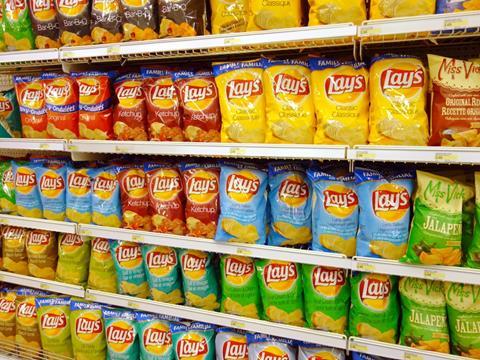
Climate tech developer UBQ Materials announced yesterday that its collaboration with PepsiCo is expanding into the production of eco-friendly display stands for Lay’s crisps sold across Europe.
The new displays will be partially made from UBQ, a bio-based thermoplastic that the company claims is made entirely from unsorted household waste; this is set to replace the oil-based plastics usually used in display stands. Allegedly, every ton of UBQ produced saves up to 12 tons of greenhouse gases that would otherwise be released via landfills and incineration.
“Our goal is to transform our entire supply chain to tackle the sustainability challenges the world faces,” said David Schwartz, vice president at PepsiCo Labs. “UBQ Materials’ waste-based thermoplastic reduces landfill waste, prevents emissions, and takes us towards circularity, which is why we are working towards scaling use of UBQ globally.
“Achieving these goals is integral to the future of our business, our customers, our consumers and the planet.”
UBQ Materials co-CEO and chairman Albert Douer continued, “PepsiCo Labs plays a critical role in supporting Pep+, prioritizing innovations that minimize the company’s environmental impact. The climate crisis demands immediate action, and this collaboration is one example of how corporations can make significant change through simple substitutions.”
The announcement comes after the companies’ previous efforts to reduce the carbon footprint of shipping pallets, a cause they plan to maintain with the order of a further 30 thousand UBQ pallets for industrial use. These are purportedly made with recycled polypropylene (PP) resin and biaxially-oriented polypropylene (BOPP), both of which are said to be plastics featured in Lay’s packaging.
UBQ claim that their use of these materials completes the circular economy cycle.
UBQ Materials is one of five organisations assisting PepsiCo in their sustainability agenda, which hopes to cut Scope 1 and 2 emissions by 75% by 2030 – a goal they are on track to meet, according to PepsiCo’s ESG Summary, released earlier this month.
In January 2022, INEOS teamed up with NEXTLOOPP to blend recycled plastics into virgin PP, aiming to produce 10,000 tonnes of food-grade recycled PP every year.
Eranova’s Alg&Bag aims to replace polypropylenes entirely, its garbage bag range winning the Carrefour Innovation Prize in 2021.














No comments yet